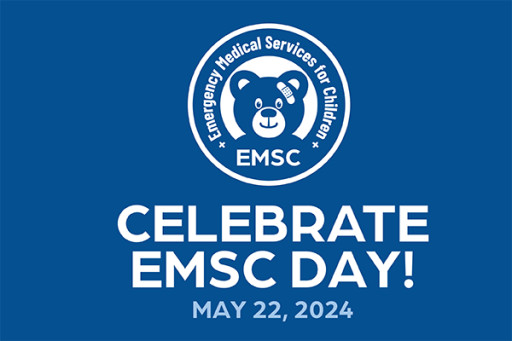Stanford Blood Donor Center Chooses the HemoFlow 500 and HemoVue Cloud Service to Streamline Its Whole Blood Collection Operations
 HemoFlow 500 blood scale/mixer
HemoFlow 500 blood scale/mixer
GRASS VALLEY, Calif., June 4, 2024 (Newswire.com)
–
Applied Science, the worldwide leader in whole blood collection prod…
Curiteva Surpasses 1,000 Procedures With Inspire® Cervical Trabecular PEEK™ With HAFUSE® Technology
 HUNTSVILLE, Ala., June 4, 2024 (Newswire.com)
HUNTSVILLE, Ala., June 4, 2024 (Newswire.com)
–
Curiteva, Inc., a privately held manufacturing and technology company, announces over 1,000 patients hav…
Neuroscience and Quantum Researcher Ali Karakus Aims to Slow Aging of Brain and Facial Cells Using Principles of Quantum Entanglement and Space-Time Dilation
 Ali Karakus’ Innovative Project Aims to Slow Aging of Brain and Facial Cells, Leading to the Foundation of a Private Deep Tech Institute in Istanbul
Ali Karakus’ Innovative Project Aims to Slow Aging of Brain and Facial Cells, Leading to the Foundation of a Private Deep Tech Institute in Istanbul

Neuroscience and Quantum Researcher Ali Karakus
A Novel Approach to Quantum Entanglement for Cellular Aging Reduction
ISTANBUL, May 25, 2024 (Newswire.com)
–
In a groundbreaking research project, Turkish neuroscience researcher Ali Karakus is investigating how quantum entanglement could revolutionize our understanding of aging. This phenomenon, where particles become so interconnected that the state of one instantly influences the state of another regardless of distance, is now being explored as a potential key to unlocking the secrets of cellular aging.
This study explores the potential of quantum entanglement to reduce cellular aging by utilizing the unique properties of time dilation experienced in space. By entangling human cells with counterparts in a controlled laboratory environment and sending the entangled cells into space, the research aims to transfer the slowed aging effects to Earth-bound cells. This paper outlines the theoretical framework, methodology, expected outcomes, potential challenges, and ethical considerations of this pioneering research.
A Radical Approach to Aging
Karakus and his team aim to significantly slow down or even reverse the aging process of human cells. The ambitious project involves entangling human brain and facial cells with their counterparts in a controlled laboratory environment. These entangled cells are then sent into space to exploit the slowed aging effects caused by time dilation — a concept from Einstein’s theory of relativity, which states that time passes more slowly for objects moving at high velocities or in strong gravitational fields.
The hypothesis is that the slowed aging of space-bound cells could be transferred to their Earth-bound entangled partners, effectively reducing the aging process in the cells left on Earth.
Methodology and Future Plans
The methodology, while straightforward, is highly innovative. Initially, human brain and facial cells are collected using minimally invasive techniques. These cells are then entangled with cells in a laboratory tube using advanced quantum technologies. Verification methods, such as Bell’s inequality tests, ensure that the cells are truly entangled.
The next step involves collaboration with space agencies like NASA and ESA to send the entangled cells into space. These cells are continuously monitored while the aging process of both space-bound and Earth-bound cells is observed. Data is collected on cellular senescence markers, DNA methylation patterns, and telomere length.
In a humorous nod to the film “The Curious Case of Benjamin Button,” Karakus speculates about the future potential of achieving faster-than-light travel, reaching tachyon particle velocities. Although this remains in the realm of science fiction, such ideas inspire creative thinking about future technologies.
Challenges and Ethical Considerations
The project is not without its challenges. Maintaining entanglement over long distances and ensuring cell viability in the harsh environment of space are significant technical hurdles. Additionally, ethical considerations, such as obtaining informed consent from cell donors and implementing stringent biosecurity measures, are paramount.
Acknowledgments and Gratitude
Ali Karakus extends his deepest gratitude to his partner and closest companion, Semih Hakyemez, whose encouragement over the past 15 years has been instrumental in his research journey. He also thanks his wife Sevde Karakus and his son Hüseyin Murat Karakus for their unwavering support and motivation.
Looking Ahead
Karakus and his team are excited about the potential of conducting studies on the Drosophila melanogaster, which has DNA most similar to human DNA. They plan to validate their hypothesis through a quantum simulation in 2026.
Conclusion
This project explores the frontier of quantum biology by applying quantum entanglement and relativistic effects to cellular aging. If successful, it could pave the way for groundbreaking advancements in age-related therapies and enhance our understanding of quantum effects on biological systems.
As we stand on the brink of what could be a quantum leap in anti-aging research, the possibilities are as vast and exciting as the universe itself.
Contact Information:
Ali Karakus
President
Related Files
a3270e62-da54-4f72-a792-c0e9f31f69e4
df24f29e-f5e3-4bad-acc4-ea63b62a8787
Leading Massage Destination Squeeze Expands Footprint in Sarasota, Florida

SARASOTA, Fla., May 23, 2024 (Newswire.com)
–
Squeeze, the fast-growing massage service destination, is expanding its personalized massage footprin…
The post Leading Massage Destination Squeeze Expands Footprint in Sarasota, Florida first appeared on RSVTV news.
Sinceri Senior Living Certified as a 2024 Great Place To Work

Sinceri Senior Living Certified Great Place To Work for Sixth Year in a Row
VANCOUVER, Wash., May 23, 2024 (Newswire.com)
–
Great Place To Work Institu…
The post Sinceri Senior Living Certified as a 2024 Great Place To Work first appeared on RSVTV news.
Discover the Path From SCARS to STARS: Join the TAR Network’s 2024 Virtual Summit on Healing From Toxic Relationships

Scars to Stars Summit 2024 Scars to Stars Summit presented by TAR Network?
HOLLYWOOD, Fla., May 15, 2024 (Newswire.com)
–
The TAR Network is excited t…
The post Discover the Path From SCARS to STARS: Join the TAR Network’s 2024 Virtual Summit on Healing From Toxic Relationships first appeared on RSVTV news.
Exclusive Screening of Highly Anticipated Film, ‘The Firing Squad,’ in Phoenix, AZ on May 28, 2024

Kevin Sorbo and James Barrington Available for Phoenix, AZ Interviews Ahead of August 2 Nationwide Release

Firing Squad Trailer Image
Firing Squad Trailer Image
NEW YORK, May 15, 2024 (Newswire.com)
–
On May 28, 2024, Epoch Studios is screening their first ever film, “The Firing Squad,” in Phoenix, AZ. Select local faith and community leaders, as well as members of the media and other guests, will have the opportunity to preview the powerful story of redemption ahead of the nationwide release on August 2, 2024.
Based on a profound true story of finding hope in the face of death, celebrated Christian filmmaker Tim Chey’s “The Firing Squad” follows the story of three convicted criminals who were sentenced to be executed by firing squad in an Indonesian prison camp in 2015. As the countdown to their deaths begins, a remarkable sequence of events unfolds, which drew international attention to the transformative power of faith and hope that transcends our darkest moments.
“The Firing Squad” promises a thought-provoking cinematic experience, starring prominent actor Kevin Sorbo (“God’s Not Dead” and “Let There Be Light”) alongside breakout star James Barrington. Talent is available for Phoenix area interviews in conjunction with the May 28, 2024 screening. A trailer of the film is available for viewing at https://www.youtube.com/watch?v=PSsOE7WwsZ8.
“At its core, this film is a story of courage, resilience and the transformative power of salvation through Jesus Christ,” said Chey. “I’m an evangelist first and a filmmaker second. Beyond mere entertainment, I pray the film will serve as a catalyst for introspection, compelling audiences to embrace the grace and love of Jesus Christ.”
The creators of the film want to see it win 1 million souls to Christ.
Sorbo, a vocal advocate for family friendly entertainment, has emphasized the importance of supporting faith-based projects like The Firing Squad.
“In today’s entertainment landscape, it’s crucial that we rally behind projects that uphold Christian values and share stories of faith,” said Sorbo. “We have a battle to win in Hollywood. Films like this are powerful tools for spreading messages of hope and inspiration.”
For screening information visit: themoviescreener.com/thefiringsquad/main and for exclusive content, visit the official website: firingsquadfilm.com or follow the film on social media:
- Facebook: facebook.com/TheFiringSquadMovie
- X: twitter.com/FiringSquad2024
- Instagram: instagram.com/firingsquadfilm
- Linkedin: linkedin.com/showcase/firingsquad
- YouTube: youtube.com/channel/UCbzzOpAcpvwwrm24-cS1bCg
Contact Information:
Chanel Turner
(214) 240-6155
Original Source:
Exclusive Screening of Highly Anticipated Film, ‘The Firing Squad,’ in Phoenix, AZ on May 28, 2024
The post Exclusive Screening of Highly Anticipated Film, ‘The Firing Squad,’ in Phoenix, AZ on May 28, 2024 first appeared on RSVTV news.
Feelgoodz Unveils Industry-Disrupting Bodhi Spa Slide

Eco-Friendly Amenity Sets New Hospitality Standards in Sustainability, Comfort, and Guest Experience
Bodhi Spa Slide Shown in black
…
The post Feelgoodz Unveils Industry-Disrupting Bodhi Spa Slide first appeared on RSVTV news.
Celebrate Emergency Medical Services for Children Day
 Join the EMSC Program in honoring EMS clinicians on Wednesday, May 22nd
Join the EMSC Program in honoring EMS clinicians on Wednesday, May 22nd
EMSC Day
AUSTIN, Texas, May 15, 2024 (News…
Gentherm and US Med-Equip Partnership Expands Blanketrol® Distribution and Field Service Program
 Photo Credit: Gentherm Medical
Photo Credit: Gentherm Medical
HOUSTON, May 15, 2024 (Newswire.com)
–
US Med-Equip, a leading provider of hospital medical equipment rentals, sales, bi…
